 Melissa Anderson
Melissa Anderson
Kelly Reichardt’s latest film: a bumbling suburban dad, a fumbled art heist, and a portrait of a nation on the decline.
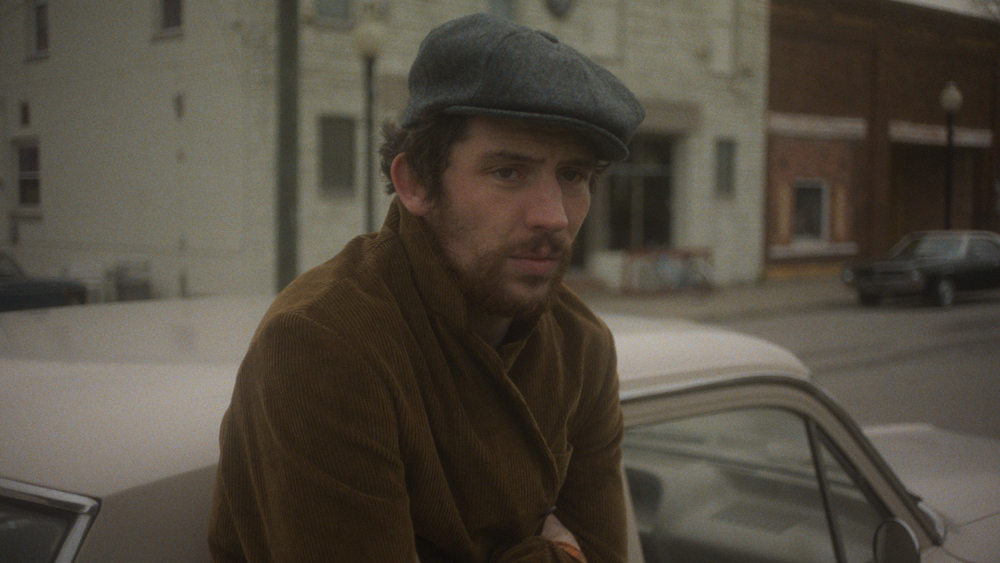
Josh O’Connor as James Blaine Mooney in The Mastermind. Courtesy Cinetic Media. © Mastermind Movie Inc.
The Mastermind, written and directed by Kelly Reichardt,
now playing in theaters
• • •
While many of Kelly Reichardt’s nine features to date are animated by political or socioeconomic matters, her work coolly emphasizes process over easy polemics. The dispassionate yet detailed focus on the rootless heroine’s day-to-day survival in Wendy and Lucy (2008), for example, offers an astute exploration of precarious life with no boisterous proclamations about the Great Recession. Even when an explicitly political act serves as the film’s core, as in Night Moves (2013), about three ecoterrorists who detonate a hydraulic dam, Reichardt shows a keener interest in the technicalities behind the trio’s scheme—how they acquire, say, five hundred pounds of ammonia-nitrate fertilizer without attracting notice—than in their self-righteous zeal.
In The Mastermind, Reichardt’s superb latest, an art heist plotted by a bumbling young suburban dad and the consequences he faces drive the story. But subtly haunting the film, which spans a few October weeks in 1970, is the bleaker narrative of a nation unraveling, its iniquities evident in the grim realities playing out on small TV sets and in overheard conversations, all while the central failson tries to outrun his ineptitude.
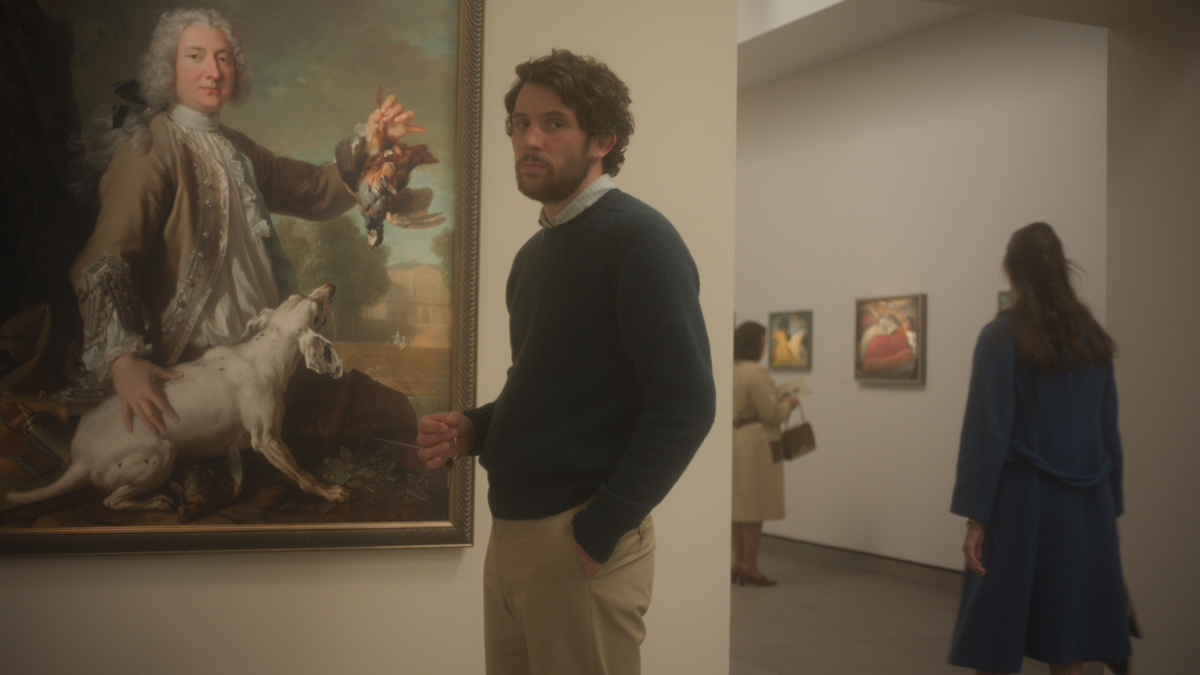
Josh O’Connor as James Blaine Mooney in The Mastermind. Courtesy Cinetic Media. © Mastermind Movie Inc.
That mediocrity, James “J. B.” Mooney (Josh O’Connor), is introduced during a family outing to the Framingham Museum of Art, a (fictional) temple of culture located in a (real) small city in the Greater Boston area. (The first of Reichardt’s films to be set in the Northeast, The Mastermind was shot primarily in Ohio.) While his wife, Terri (Alana Haim), and their two boys—bespectacled Tommy (Jasper Thompson) and nattering Carl (Sterling Thompson)—roam around other rooms, James appears absorbed by a canvas. His bigger art-high, though, comes a few minutes later, when he discovers how easy it is to unlock a vitrine and purloin a tiny wooden figure from its mates.
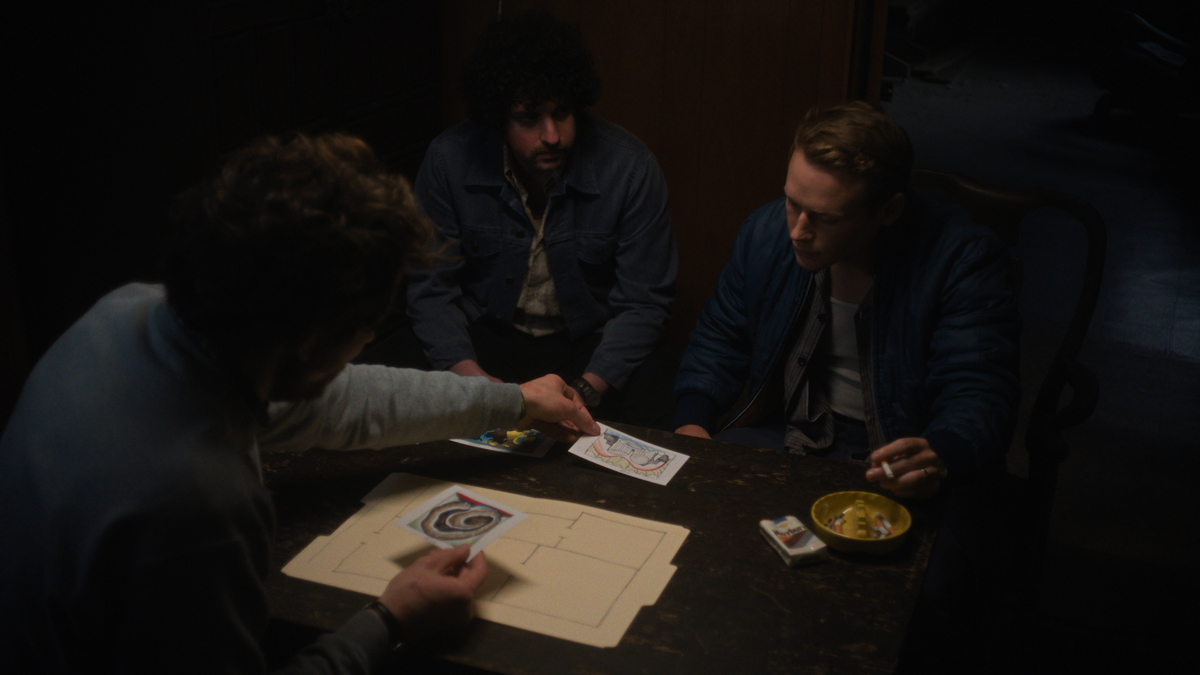
Josh O’Connor as James Blaine Mooney, Eli Gelb as Guy Hickey, and Cole Doman as Larry Duffy in The Mastermind. Courtesy Cinetic Media. © Mastermind Movie Inc.
This small-potatoes pilfering is a quasi–dress rehearsal for James’s big score, the snatch-and-grab of four Arthur Dove paintings in broad daylight. To execute this foolhardy operation, he’s enlisted three other knuckleheads—one of whom bails at the last minute and another who rats him out a few days after the crime. Now on the lam, James seeks refuge via Greyhound Bus, his increasingly dire circumstances at each way station seeming not to humble him but further stoke his self-importance.
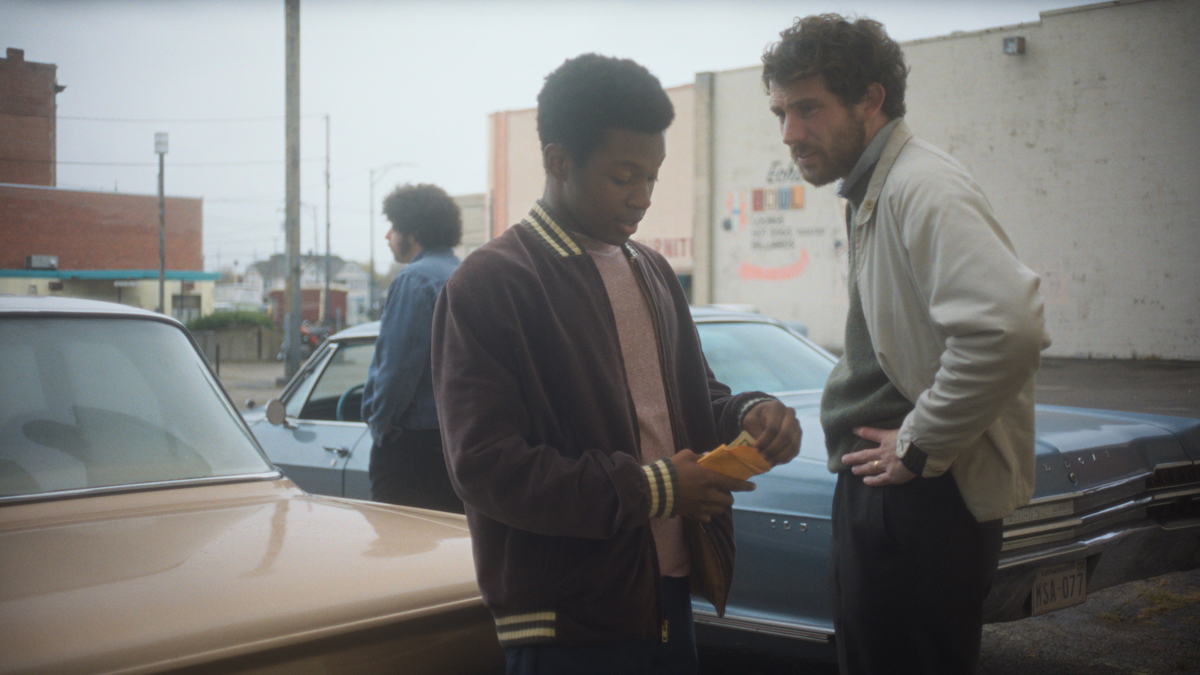
Javion Allen as Ronnie Gibson (center) and Josh O’Connor as James Blaine Mooney (right) in The Mastermind. Courtesy Cinetic Media. © Mastermind Movie Inc.
Reichardt’s filmography is rich with shrewd examinations of men living on the margins, such as Will Oldham’s free spirit in Old Joy (2006), the enviro-radicals played by Peter Sarsgaard and Jesse Eisenberg in Night Moves, and the two buddies—a formerly indentured laborer (John Magaro) and a Chinese immigrant (Orion Lee)—who sell baked goods in 1820s Oregon Territory in First Cow (2019). James assumes his place in this fraternity, but unlike his predecessors, he evinces no fellow feeling, no affinity for any cause other than himself—at a time when anti-war protests and other mass demonstrations for a more just world were a daily, if not hourly, occurrence.
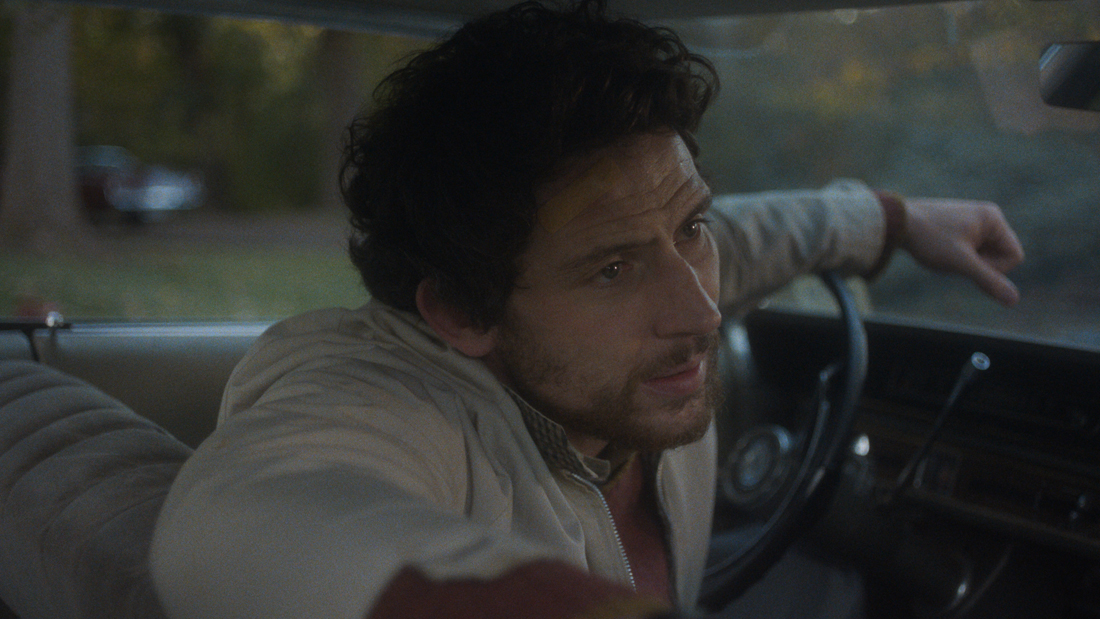
Josh O’Connor as James Blaine Mooney in The Mastermind. Courtesy Cinetic Media. © Mastermind Movie Inc.
As with the protagonists in much of Reichardt’s work, salient facts about James are parceled out slowly, almost offhandedly. A tetchy dinner-table conversation with his father (Bill Camp) reveals that James is a carpenter of some sort, though a resolutely unemployed one. He’s a perpetually indulged child who easily cajoles his mother (Hope Davis) into writing a large check for what he insists is a great business opportunity; her lucre will fund his art burglary. James’s dad, it turns out, is a circuit-court judge, patrilineage that the layabout uses to shake two cops who have some questions for him. He’s also an art-school dropout. Does he take the Dove paintings in the hopes of profiting off them—or he is motivated by some other, murkier force? Does James love art or despise it, as only the talentless can hate the sublimely gifted?
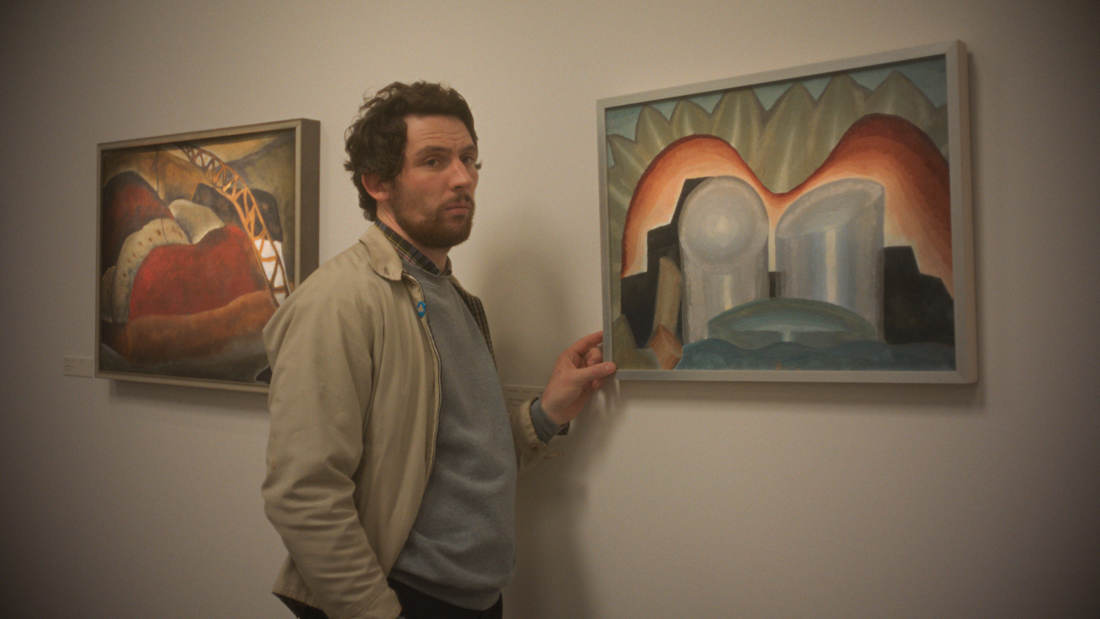
Josh O’Connor as James Blaine Mooney in The Mastermind. Courtesy Cinetic Media. © Mastermind Movie Inc.
Among the many satisfactions of The Mastermind is that no pat answers are given to these questions. But while James may be enigmatic, he is a full-bodied character: a beta loser who has convinced himself of his alpha superiority. Despite his self-delusion, James is a consistently magnetic presence, his foibles brought to vivid life by O’Connor, who finds both the humor and the pathos in his character’s ludicrous predicaments. With his head of thick curls and subdued charisma, O’Connor here calls to mind Elliott Gould’s melancholic private eye in 1973’s The Long Goodbye. (As Gould did in that film, O’Connor immortalizes the rumpled suit, not only in The Mastermind but also in Alice Rohrwacher’s La Chimera, from 2023.)
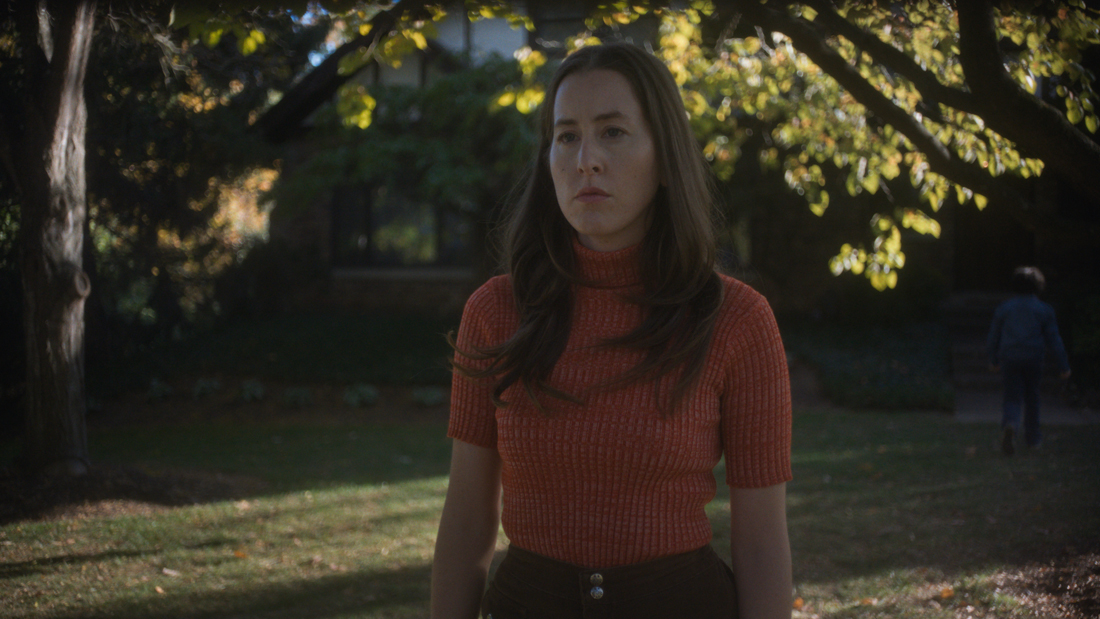
Alana Haim as Terri Mooney in The Mastermind. Courtesy Cinetic Media. © Mastermind Movie Inc.
Reichardt’s is one of the rare recent films to take place during the era known as the long 1960s in which the epoch’s mood, style, and culture are conveyed potently yet unobtrusively. There are no K-Tel Records classics among the pop songs selected, used diegetically and often heard coming from the radio of Terri’s VW Beetle as she drives the kids to school—the most recognizable tune is a snippet of the Fifth Dimension’s upbeat cover of Laura Nyro’s “Save the Country,” which she wrote in response to Robert F. Kennedy’s assassination. There are no wig offenses or fashion abominations; costume designer Amy Roth has assembled a mix of denim, wool, and polycotton garments that successfully transport us to the Nixon administration and not ’70s-night at the club. Christopher Blauvelt, the cinematographer for all of Reichardt’s films since Meek’s Cutoff (2010), expertly captures the fall light, the muted sunshine that signals the decay soon to come.
Beyond its seasonal setting, The Mastermind is an autumnal film, a portrait of a republic in decline. In one of the rooming houses where James has holed up while in flight from the law, he busies himself with trying to forge a passport as flickering images of military operations in Southeast Asia play in the background. At a bar where the incompetent criminal idly spends several hours, two young Black men listen to another discuss his harrowing time at Parris Island. A coddled, flailing scion, James has been spared the horrors of Vietnam and so much else. But, as the film’s dynamite final scene shows, not even he is immune from wanton, state-sanctioned brutality. He’s a citizen of a country that can’t be saved.
Melissa Anderson is the film editor of 4Columns and the author of a monograph on David Lynch’s Inland Empire from Fireflies Press. A collection of her film criticism, The Hunger, will be published in November by Film Desk Books.